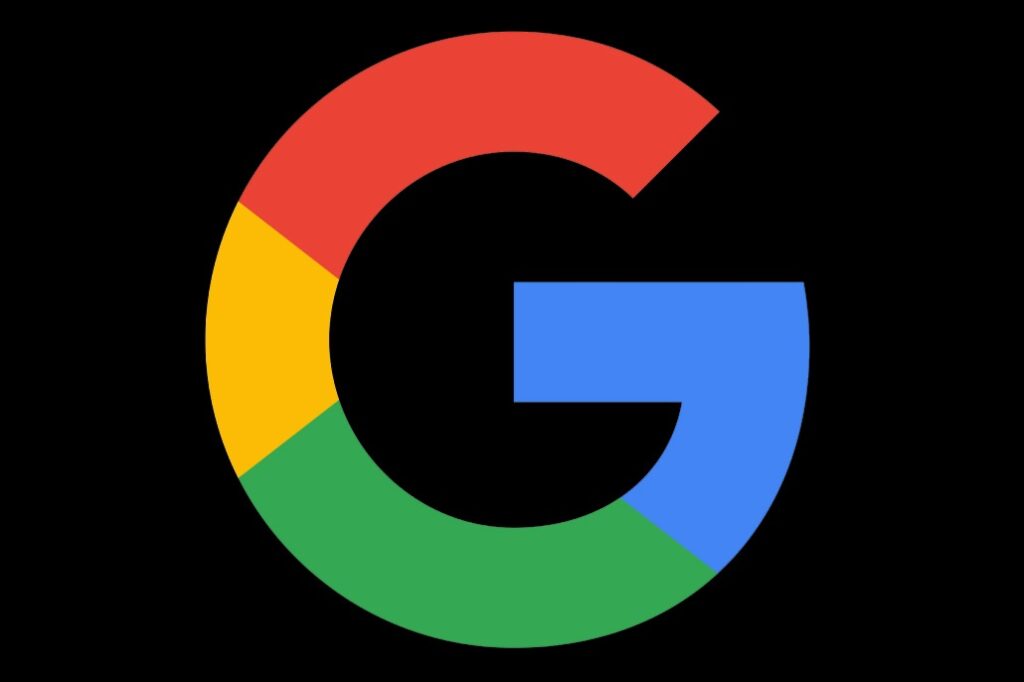
On December 3, 2020, Google rolled out the December 2020 broad core update, the changes of which have taken a few weeks to be completely felt and understood. December rollout is the third core update for the year 2020, the first one was the January 2020 core update and the second one was the May 2020 core update. Google has been consistent in its releases of core updates which are globally released every month or so.

These releases are fundamentally designed to improve Google’s search results, some of these changes are immediately noticeable some aren’t. Like mentioned several times a year, the search algorithm and systems are upgraded and updated which are referred to as “core updates”. These changes are designed with Google’s singular aim which is to present relevant and authoritative content to the searches. Core updates like the recent December 2020 update may also affect Google Discover.
With core updates like these, it is important to note that these tend to create some prominent effects. In the past, it has been noticed that some sites may experience drops or gains due to these core updates.
Post these core updates there have been instances that sites which experience a drop seek out solutions to rectify it, however, Google has come forth and assured that these drops are not due to any violation of their webmaster guidelines nor are these sites subjected to any manual or algorithmic action which only happens in case of such violations. These updates are aimed to improve how Google assesses content overall.

The December 2020 core update seemed to have an impact even bigger than the one back in May. Early Semrush Sensor data suggested this could be the case, as the average SERP volatility on December 4 had a score of 9.4 – similar to the May 2020 core update. January’s core update stood at a comparably lower 8-point mark.
As the analysis of the newly rolled out update is still ongoing, one can already feel the effect of the same, and while studying the effects it is important to keep in mind that
- These changes in the ranking are not always a result of the domain’s algorithm and in fact, are the reaction to changes in a competitor domain.
- Small domains usually have large % changes in the normal course of SERPs updates and Core Update changes may be difficult to spot.
- It is also important to keep in mind that the changes are a result of local changes, these could have been triggered by changes on a website at or around the data of the Core Update.
Businesses and webmasters all across have expressed genuine concern over the timing of this update. Numerous countries across the world celebrate the holiday season which is a time of big profits for many big and small brands. However, Google defended its decision to roll off this release a few weeks prior to the holiday season. They said keeping in mind this very reason, the release was scheduled after Thanksgiving season and the bumper Black Friday and Cyber Monday. While these occasions allow businesses to see significant sales, many worry that the windows of sale right before the holidays would be ruined due to the almost devastating timing of this update rollout.
May 2020 Core Update
The previous update which was rolled out in May created a lot of buzz was a potent update. Mordy Oberstein from RankRanger called the May update “an absolute monster.” “The January update was a very big update yet this one slightly edges it out,” he added. The company shared this chart comparing the
The first core update for 2020 was launched in the second week of January 2020, when coronavirus and COVID-19 weren’t on everyone’s mind constantly. The world however quickly transformed as a pandemic ensued which also caused prominent changes in user’s search behavior.
Google confirmed that there have never been so many searches for a single topic as there have been for COVID-19. Having said that, May 2020 Core Update, as potent as it was, was also said to be flawed. A popular complaint about this update is that sites like Pinterest were clogging up the search engine results pages (SERPs).
Another feedback as voiced prominently on Twitter was that big brands like Amazon were clear winners and double listings with certain keywords.
While analyzing the May 2020 Core update, SEMRush the May update is stronger and influences more SERPs and positions. The SEMRush sensor tracking tool showed a score of 9.4, whereas the January update was closer to 8. So this was a big update relative to other core updates.
Winners and Losers – December 2020 Core Updates
After the December update rollout on 3rd December, various sectors seem to be prominently affected. On the second day of the roll-out, SERPs for most site categories reached a 9.4 volatility mark, even SERPs that on the first day of the update seemed to be relatively unaffected by it like Books & Literature and Real Estate. Even the industries that rarely experienced any noticeable volatility felt the effects of the broad core update.
Based on the initial analysis, SEMRush created a list of winners and losers after the rollout of December 2020 Core updates.

Some of the winners were:
- Zoominfo.com
- Whitepages.com
- Linkedin.com
- Ebay.com
- Vimeo.com
- Foursquare.com
Some of the losers:
- Yellowpages.com
- Newsbreak.com
- Gettyimages.com
- Wish.com
- Aliexpress.com
With the results of the pandemic still dominating the economy, these substantial adjustments could reflect the rapidly changing landscape in business and recruitment.
If the analysis is done on a macro level, a quick glance reveals that music-related websites experienced a significant drop. A similar trend can be seen for medical and health websites, however, experts point out that it is too identify a steady trend.
Domains like Spotify and twitch who suffered significant losses with the May 2020 Core Update, had grown to look forward to the December 2020 Core Update, however, it hasn’t been able to make up for the loss suffered seven months ago. The source of hope however happens to be the assumption that Google is releasing the update in iterations which is making the results appear not immediately apparent.
Sistrix also published data on the December 2020 Core Update where Johannes Beus, the CEO of Sistrix, asked if this was an early Christmas present from Google. Beus went on to say that within a day of the rollout, shifts in the search results can be seen.
Sistrix’s data revealed that another significant losers when it comes to the May and December 2020 Core Updates are dictionaries and encyclopedias. The reason however was not of any surprise.
In October 2020, a new section was added by Google which is used to rate dictionary and encyclopedia results for different queries. These changes primarily looked to highlight the significance of understanding the user query and the intent behind the queries made by the regular users.
How to recover if you’re hit
Google has maintained that in case a domain or a page experiences a drop after any core update, they don’t necessarily have anything wrong which needs to be fixed. They went on to add that if a domain/page sees a drop, ensuring that the content is of the best quality is crucial. Google’s algorithm prioritizes content over everything else.
It is interesting to note that Google has also pointed out in the recent past that in case a site/domain is negatively impacted by a Google’s Core Algorithm update, one need not wait for the next update to recover from the losses. The data and signals which impact and make up the fundamentals of Google’s core Update get updated on a regular basis between Google core updates, therefore confirming that the scores within the updates are updated with a regular frequency.
However, in light of drops and user dismay, Google released a set of questions to help evaluate one’s domain/page better. These questions advise the users to evaluate and reevaluate
- Content and the quality of the content
- The expertise which backs the content on the pages
- Presentation and production of these pages
- Comparative analysis with competitors to understand the quality standard in the industry.
It is also advised by Google to go a step beyond these questions and consider having trusted associates, independent to the domain/page to help with an assessment that helps with the evaluation. An audit of specific pages that see the most significant drops are also advised, including the kind of searches and keywords. This along with the association to the questions listed above can help one analyze and recover from any drops which may be experienced.
When it comes to good content, Google also advises reviewing their search quality rater guidelines. With insights on if the algorithm seems to be working and giving good results, Raters help confirm if the changes rolled out are doing well.
However, it is crucial to understand that these search raters have no power over the page rankings. And this data is not used in Google’s ranking algorithm.
Raters are trained to understand if a page has strong E-A-T, where E-A-T stands for Expertise, Authoritativeness, and Trustworthiness. Google updated these guidelines in May 2019, which aims at helping users access how the content they are putting out is doing from an E-A-T point of view.
Addressing the recovery, Google also advises that it is important for us to understand that the way content is perceived by humans, search engines aren’t capable of the same. It is therefore they rely so heavily on signals which are collected related to the content, and then further analysis on how these correlate to how we humans measure the relevance of content.
Therefore before any board core update is released, they are tested and vetted, by the raters and the feedback from these raters helps Google understand how the signals are beneficial in achieving their ultimate mission. With continuous updates being rolled out, apart from the broad core updates, the aim to go improve the search engine.
With Google’s Core Update, it is sometimes difficult to identify what needs to be done to revive from any negative effect that may have hit a site/page. As the name suggests these updates are large and broad allowing them to cover a wide range of overall issues. The data analyzed by the SEO Community and webmasters, in general, allows us to understand and reinforce the trends which have emerged time and again after such updates. Therefore in case your page/domain has been hit by the December 2020 Core Update, it is a good idea to take a step back and study your site with a wider lens, allowing you the scope to improve on a larger scale.

An enthusiastic Human Being with a zeal to express as much she can in words… and Blogs gave her a medium to express and share her knowledge. Has written for eminent blogs and fields like the social media, internet marketing, technology, lifestyle (tattoos, body art, fashion, etc.), politics, and the list is still increasing.

